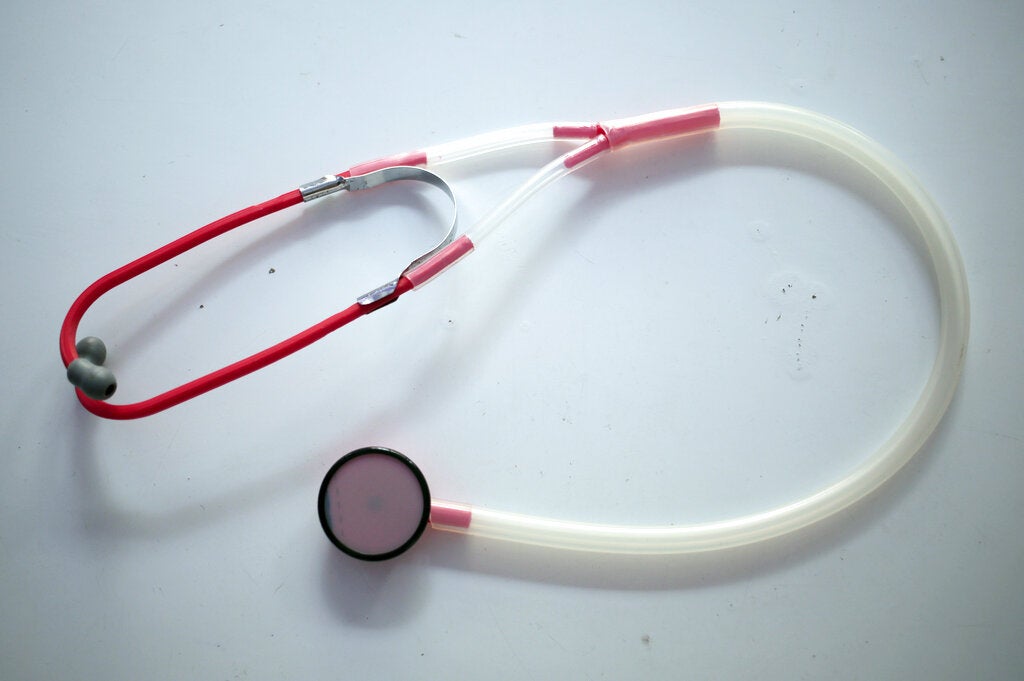More than 1 million Americans experience menopause each year, and according to a new Mayo Clinic survey, its symptoms are costing about $1.8 billion in lost work time.
The survey collected the experiences of more than 4,000 people at Mayo Clinic sites in Minnesota, Arizona, Florida and Wisconsin. Researchers studied how symptoms such as hot flashes, night sweats or mood swings affect women in the workplace.
“Without a policy or support in the workplace (for people experiencing menopause symptoms), that means some women have to make a tough decision about taking care of themselves versus sticking it out at work,” said Dr. Jewel Kling, a co-author of the study and chair of the Women’s Health Internal Medicine division at the Mayo Clinic in Scottsdale, Arizona.
News with a little more humanity
WPR’s “Wisconsin Today” newsletter keeps you connected to the state you love without feeling overwhelmed. No paywall. No agenda. No corporate filter.
Kling said the survey marks the largest known study on the relationship between menopausal symptoms and adverse work impacts. About 1 percent of survey respondents reported their symptoms were so debilitating that they either quit or lost their jobs.
Kling recently joined Wisconsin Public Radio’s “The Morning Show” to discuss the research.
Kate Archer Kent: Your study reveals a big economic cost to women in menopause. What did you find?
Dr. Jewel Kling: We found that 13 percent of the women we surveyed experienced at least one adverse work outcome related to menopause symptoms and about 11 percent were missing days of work because of these symptoms. When we extrapolated those numbers looking at national statistics… we would estimate an annual economic impact of about $1.8 billion in lost work days. So certainly a profound impact.
KAK: How can conditions in the workplace improve to better accommodate people going through this phase in life?
JK: This is something that really we need to step back and take a look at because menopause is a natural occurrence. We don’t want to make this a pathology for women or call women out.
We want to be supportive in a way that allows them to continue to work at the top of their scope.
It may look different for each workplace, for example, in a place that has restrictions on the type of clothing you can wear in that workplace or access to a fan. Those workplaces may want to look at giving women that are experiencing hot flashes (or) night sweats access to tools that will help with their symptoms.
KAK: Do you see other countries leading the way on creating more menopause friendly workplaces?
JK: The conversation about menopause in the workplace is definitely something that’s being had across the world. Last year, we had our International Menopause Society meeting in Portugal and this was a popular topic. There are some countries that are looking at policies, such as the United Kingdom, in attempting to implement things that would support women.
KAK: You surveyed more than 4,000 people. The majority were white, educated and married. Is menopause a universal experience?
JK: Going through menopause is a universal experience, meaning every woman will go through menopause, which is the cessation of your menstrual cycles. It occurs 12 months after your last menstrual cycle. Perimenopause is any period before that time.
Now, the symptoms of menopause, though, will look different for different women. Many will have hot flashes and night sweats. Many will have sleep disturbances. Some will have cognitive complaints, palpitations and sexual dysfunction like vaginal dryness.
We do see some racial and ethnic differences in those symptoms. For example, Black and Hispanic women tend to have more symptoms that last for a longer period of time.
KAK: Where should the research on menopause go next? Where is it most needed?
JK: It’s needed everywhere. Menopause has so little research and really investigating things like how can we predict menopause? Why is the experience different in different women? What are the best treatments and what are those outcomes? We have a good foundation of research, but really, I think women deserve more.
Wisconsin Public Radio, © Copyright 2025, Board of Regents of the University of Wisconsin System and Wisconsin Educational Communications Board.




